Since 9 September, Burundian refugees in Nyarugusu camp in Tanzania have been deprived of markets. The situation was exacerbated by the agreement signed between Tanzania and Burundi to launch a huge campaign of mass return of refugees from October 1st.
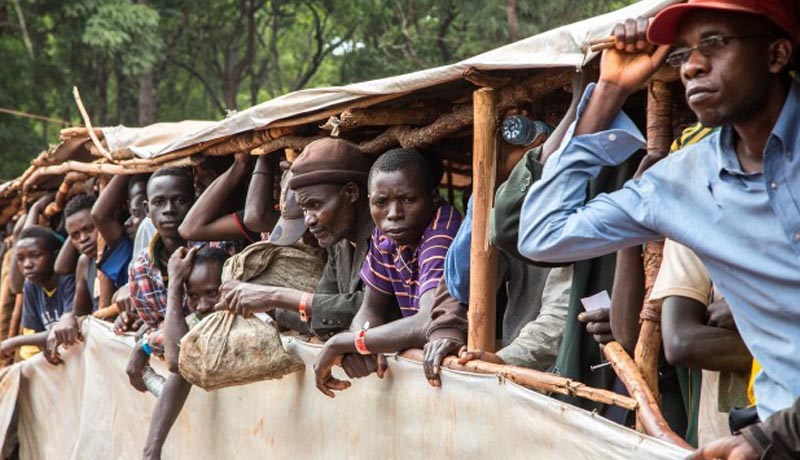
The Tanzanian Minister of Home Affairs: “They have to go back home.”
Markets in Nyarugusu camp have been closed since 9 September. Refugees who were selling or buying goods in the three markets of the camp say they are in despair. For fruit and vegetable traders, the loss is huge. They had to liquidate the goods by selling them at the lowest prices. “The situation is unbearable. I had to sell my goods on the sly fearing that they would be damaged. As far as cassava flour is concerned, I decided to keep it at home,” says a small trader.
The statement announcing the closing of markets was terse. The reasons behind the decision to suspend the trade which made it possible to improve the living conditions of the refugees were not made public.
That silence led to refugees’ assumptions and speculation in the camp. “It’s clear that the Tanzanian government wanted us to understand that it doesn’t want us any longer on its territory,” said some refugees in Nyarugusu camp.
This decision follows another one which was made a few days before. The government stopped any voluntary repatriation scheduled for September as part of the agreement signed by Tanzania, Burundi and UNHCR. Refugees expected to return to the country had to wait for the massive return in early October.
It seems that Magufuli’s power is determined to send Burundian refugees back home. The decision was taken after the visit of the Burundian Minister of Home Affairs from 23 to 24 August. He was received by his Tanzanian counterpart and they visited together Nduta and Mtendeli refugee camps. They also signed a new repatriation agreement of Burundian refugees. This agreement states that Burundians must return to their country because there is peace in the country.
The agreement provides for a return of 2,000 refugees per week from October 1st for a total of approximately 180,000 refugees.
“They have to go back home at all costs. Burundi has recovered peace and security. We do not see why they are reluctant to return to their home country, “said Kangi Logola, the Tanzanian Minister of Home Affairs after the meeting.
As if up in arms against the UNHCR and international organizations that discourage the return of Burundians, he said: “This repatriation process should in no way be interrupted by anyone either Burundians, Tanzanians or UNHCR. We know that there are people or international organizations that tell refugees that Burundi is not peaceful, which is not true. Whoever will be caught telling refugees that there is no peace in Burundi will have to face the fire of Tanzanian President John Pombe Magufuli”.
Since the announcement of this agreement, protests come from everywhere. Human rights defenders, politicians, Burundian civil society, all protested against the measure. Words such expulsion, repression, forced repatriation are referred to. All of them denounce a violation of the 1951 Geneva Convention relating to the Status of Refugees.
Gitega power rejoices. It says to be ready to welcome all Burundian refugees. Burundi’s Minister of Home Affairs Pascal Barandagiye denies accusations of forced repatriation. He indicates that the return will be voluntary “although he wonders what they are doing in exile while security is guaranteed in the country.” He asks UNHCR-Tanzania and UNHCR- Burundi to be ready to assist the return of Burundian refugees.
“If UNHCR refuses to cooperate, the two countries will do it alone. We will no longer suffer the reluctance of an organization that has made Burundian refugees a business.”
Reactions
UNHCR: “UNHCR believes that conditions in Burundi are not conducive to the return of refugees”
 Dana Hugues, spokeswoman for the UN High Commissioner for Refugees, says that while overall security has improved, UNHCR is of the view that conditions in Burundi are currently not conducive to the promotion of refugees’ return. Hundreds of people are still fleeing Burundi each month and UNHCR urges governments in the region to keep borders open and make asylum accessible for those in need. UNHCR ensures that it continues to assist refugees who say that they have chosen freely to return voluntarily.
Dana Hugues, spokeswoman for the UN High Commissioner for Refugees, says that while overall security has improved, UNHCR is of the view that conditions in Burundi are currently not conducive to the promotion of refugees’ return. Hundreds of people are still fleeing Burundi each month and UNHCR urges governments in the region to keep borders open and make asylum accessible for those in need. UNHCR ensures that it continues to assist refugees who say that they have chosen freely to return voluntarily.
UNHCR urges the governments of Tanzania and Burundi to commit themselves to respecting international obligations and ensure that any return is voluntary, in accordance with the tripartite agreement signed in March 2018.
The United States of America: “The US is ready to help if the repatriation is voluntary”
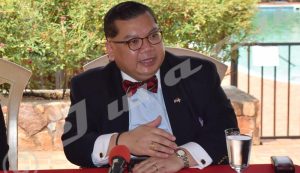 J. Peter Pham, US Special Envoy for the Great Lakes region, said that one of the missions that the Secretary of State entrusted to him is to facilitate dialogue so that refugees from all countries of the region return home. He recalls, however, that all countries signed the international conventions on refugee rights which stipulate that the repatriation of refugees is voluntary and not forced. He hopes that the repatriation planned for October will be voluntary.
J. Peter Pham, US Special Envoy for the Great Lakes region, said that one of the missions that the Secretary of State entrusted to him is to facilitate dialogue so that refugees from all countries of the region return home. He recalls, however, that all countries signed the international conventions on refugee rights which stipulate that the repatriation of refugees is voluntary and not forced. He hopes that the repatriation planned for October will be voluntary.
J.Peter Pham says that the United States is ready to help as it has done over the past few years if the process is voluntary. “But the repatriation has to be really voluntary. Because forced repatriation is not only injustice, but also a crime against international human rights,” he said.
Analysis/ The undesirables of Tanzania
Burundian refugees in Tanzania are accused of causing insecurity and attacks in the camps as confirmed by the Tanzanian authorities. The camp markets have also been closed.
The speeches of the Tanzanian authorities which are sometimes threatening or calling for the refugees’ return come one after another. On July 20, 2017, during President Nkurunziza’s visit to Ngara in Tanzania, Tanzanian President John Pombe Magufuli adopted the rhetoric of his counterpart calling Burundians to return. We also remember the then Tanzanian Minister of Home Affairs Emmanuel Maganga. During a visit to Nduta camp on July 24, 2018, he said: “This is the final warning. Everyone must be registered on the voluntary repatriation list. ”
Worse, Minister Kangi Logola said that Burundians must be repatriated “willy-nilly”.
Tanzania shows once again that it is “close” to Burundi. It plays the game of its neighbor and friend.
The return of Burundian refugees would be a blessing for Gitega. By domino effect, it could lead to the return of other refugees and cut short the argument (the persistence of the crisis) put forward by refugees and all those who are against the refugees’ return.
It remains to be seen what fate will be reserved for refugees who will resist repatriation and decide to stay in Tanzania. Will the country proceed with their expulsion and thus fail in its historical reputation of a host country? That’s the question …
Story written by Agnès Ndirubusa and translated into English by Pierre Emmanuel Ngendakumana

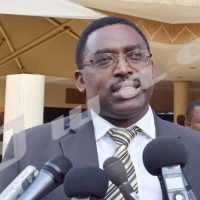
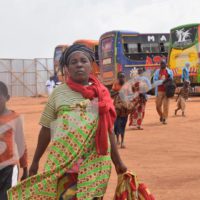
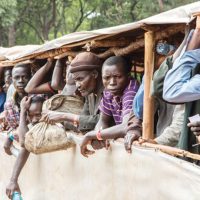














 IWACU Open Data
IWACU Open Data

